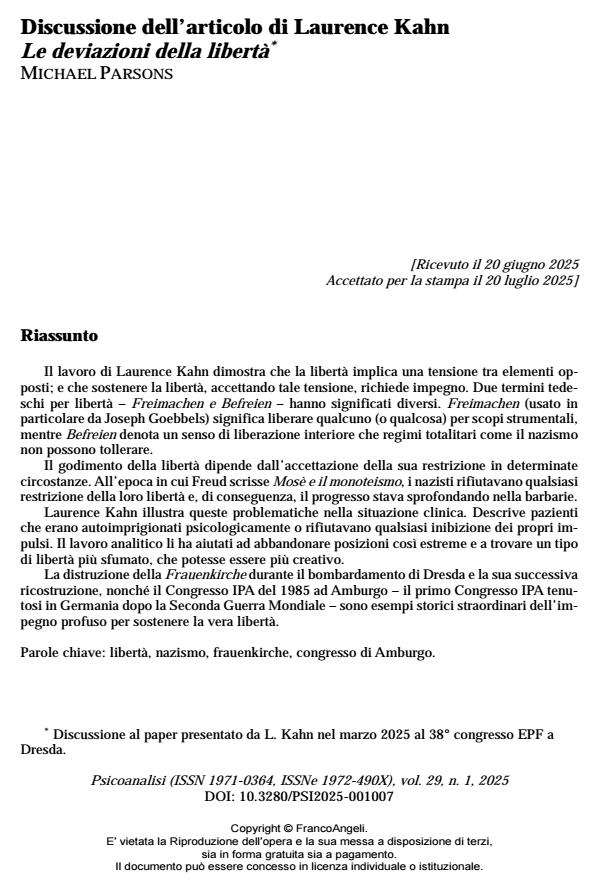Discussione dell’articolo di Laurence Kahn Le deviazioni della libertà
Journal title PSICOANALISI
Author/s Michael Parsons
Publishing Year 2025 Issue 2025/1
Language Italian Pages 8 P. 87-94 File size 56 KB
DOI 10.3280/PSI2025-001007
DOI is like a bar code for intellectual property: to have more infomation
click here
Below, you can see the article first page
If you want to buy this article in PDF format, you can do it, following the instructions to buy download credits

FrancoAngeli is member of Publishers International Linking Association, Inc (PILA), a not-for-profit association which run the CrossRef service enabling links to and from online scholarly content.
Laurence Kahn’s paper shows that freedom involves a tension between opposing elements; and that sustaining freedom, by accepting that tension, requires work. Two German words for freedom – Freimachen and Befreien – have different meanings. Freimachen (used notably by Joseph Goebbels) means freeing somebody (or something) for instrumental purposes, while Befreien denotes a sense of interior liberation which totalitarian regimes like Nazism cannot tolerate. The enjoyment of freedom depends on accepting its restriction in certain circumstances. At the time Freud was writing Moses and Monotheism, the Nazis were refusing any restriction of their freedom, and as a result, progress was collapsing beck into barbarism. Laurence Kahn illustrates these issues in the clinical situation. She describes patients who either imprisoned themselves psychologically, or else refused any inhibition of their impulses. The analytic work helped them to give up such extreme positions, and find a more nuanced kind of freedom that could be more creative. The destruction of the Frauenkirche in the fire-bombing of Dresden and its eventual rebuilding, and the 1985 IPA Congress in Hamburg – the first IPA Congress to be held in Germany since the Second World War – are outstanding historical examples of the work involved in sustaining true freedom.
Keywords: freedom, nazism, frauenkirche, Hamburg congress.
Michael Parsons, Discussione dell’articolo di Laurence Kahn Le deviazioni della libertà in "PSICOANALISI" 1/2025, pp 87-94, DOI: 10.3280/PSI2025-001007